- Home
- P. G. Wodehouse
Blanding Castle Omnibus Page 18
Blanding Castle Omnibus Read online
Page 18
There was a cold silence as he slowly raised himself from the floor. As his eyes fell on the tongue, he started and remained gazing fixedly at it. Surprise paralyzed him.
Lord Emsworth was also looking at the tongue and he leaped to a not unreasonable conclusion. He spoke coldly and haughtily; for he was not only annoyed, like the others, at the anticlimax, but offended. He knew that he was not one of your energetic hosts who exert themselves unceasingly to supply their guests with entertainment; but there was one thing on which, as a host, he did pride himself—in the material matters of life he did his guests well; he kept an admirable table.
“My dear Baxter,” he said in the tones he usually reserved for the correction of his son Freddie, “if your hunger is so great that you are unable to wait for breakfast and have to raid my larder in the middle of the night, I wish to goodness you would contrive to make less noise about it. I do not grudge you the food—help yourself when you please—but do remember that people who have not such keen appetites as yourself like to sleep during the night. A far better plan, my dear fellow, would be to have sandwiches or buns—or whatever you consider most sustaining—sent up to your bedroom.”
Not even the bullets had disordered Baxter’s faculties so much as this monstrous accusation. Explanations pushed and jostled one another in his fermenting brain, but he could not utter them. On every side he met gravely reproachful eyes. George Emerson was looking at him in pained disgust. Ashe Marson’s face was the face of one who could never have believed this had he not seen it with his own eyes. The scrutiny of the knife-and-shoe boy was unendurable.
He stammered. Words began to proceed from him, tripping and stumbling over each other. Lord Emsworth’s frigid disapproval did not relax.
“Pray do not apologize, Baxter. The desire for food is human. It is your boisterous mode of securing and conveying it that I deprecate. Let us all go to bed.”
“But, Lord Emsworth—”
“To bed!” repeated his lordship firmly.
The company began to stream moodily upstairs. The lights were switched off. The Efficient Baxter dragged himself away. From the darkness in the direction of the servants’ door a voice spoke.
“Greedy pig!” said the voice scornfully.
It sounded like the fresh young voice of the knife-and-shoe boy, but Baxter was too broken to investigate. He continued his retreat without pausing.
“Stuffin’ of ‘isself at all hours!” said the voice.
There was a murmur of approval from the unseen throng of domestics.
CHAPTER IX
As we grow older and realize more clearly the limitations of human happiness, we come to see that the only real and abiding pleasure in life is to give pleasure to other people. One must assume that the Efficient Baxter had not reached the age when this comes home to a man, for the fact that he had given genuine pleasure to some dozens of his fellow-men brought him no balm.
There was no doubt about the pleasure he had given. Once they had got over their disappointment at finding that he was not a dead burglar, the house party rejoiced whole-heartedly at the break in the monotony of life at Blandings Castle. Relations who had not been on speaking terms for years forgot their quarrels and strolled about the grounds in perfect harmony, abusing Baxter. The general verdict was that he was insane.
“Don’t tell me that young fellow’s all there,” said Colonel Horace Mant; “because I know better. Have you noticed his eye? Furtive! Shifty! Nasty gleam in it. Besides—dash it!—did you happen to take a look at the hall last night after he had been there? It was in ruins, my dear sir—absolute dashed ruins. It was positively littered with broken china and tables that had been bowled over. Don’t tell me that was just an accidental collision in the dark.
“My dear sir, the man must have been thrashing about—absolutely thrashing about, like a dashed salmon on a dashed hook. He must have had a paroxysm of some kind—some kind of a dashed fit. A doctor could give you the name for it. It’s a well-known form of insanity. Paranoia—isn’t that what they call it? Rush of blood to the head, followed by a general running amuck.
“I’ve heard fellows who have been in India talk of it. Natives get it. Don’t know what they’re doing, and charge through the streets taking cracks at people with dashed whacking great knives. Same with this young man, probably in a modified form at present. He ought to be in a home. One of these nights, if this grows on him, he will be massacring Emsworth in his bed.”
“My dear Horace!” The Bishop of Godalming’s voice was properly horror-stricken; but there was a certain unctuous relish in it.
“Take my word for it! Though, mind you, I don’t say they aren’t well suited. Everyone knows that Emsworth has been, to all practical intents and purposes, a dashed lunatic for years. What was it that young fellow Emerson, Freddie’s American friend, was saying, the other day about some acquaintance of his who is not quite right in the head? Nobody in the house—is that it? Something to that effect, at any rate. I felt at the time it was a perfect description of Emsworth.”
“My dear Horace! Your father-in-law! The head of the family!”
“A dashed lunatic, my dear sir—head of the family or no head of the family. A man as absent-minded as he is has no right to call himself sane. Nobody in the house—I recollect it now—nobody in the house except gas, and that has not been turned on. That’s Emsworth!”
The Efficient Baxter, who had just left his presence, was feeling much the same about his noble employer. After a sleepless night he had begun at an early hour to try and corner Lord Emsworth in order to explain to him the true inwardness of last night’s happenings. Eventually he had tracked him to the museum, where he found him happily engaged in painting a cabinet of birds’ eggs. He was seated on a small stool, a large pot of red paint on the floor beside him, dabbing at the cabinet with a dripping brush. He was absorbed and made no attempt whatever to follow his secretary’s remarks.
For ten minutes Baxter gave a vivid picture of his vigil and the manner in which it had been interrupted.
“Just so; just so, my dear fellow,” said the earl when he had finished. “I quite understand. All I say is, if you do require additional food in the night let one of the servants bring it to your room before bedtime; then there will be no danger of these disturbances. There is no possible objection to your eating a hundred meals a day, my good Baxter, provided you do not rouse the whole house over them. Some of us like to sleep during the night.”
“But, Lord Emsworth! I have just explained—It was not—I was not—”
“Never mind, my dear fellow; never mind. Why make such an important thing of it? Many people like a light snack before actually retiring. Doctors, I believe, sometimes recommend it. Tell me, Baxter, how do you think the museum looks now? A little brighter? Better for the dash of color? I think so. Museums are generally such gloomy places.”
“Lord Emsworth, may I explain once again?”
The earl looked annoyed.
“My dear Baxter, I have told you that there is nothing to explain. You are getting a little tedious. What a deep, rich red this is, and how clean new paint smells! Do you know, Baxter, I have been longing to mess about with paint ever since I was a boy! I recollect my old father beating me with a walking stick… . That would be before your time, of course. By the way, if you see Freddie, will you tell him I want to speak to him? He probably is in the smoking-room. Send him to me here.”
It was an overwrought Baxter who delivered the message to the Honorable Freddie, who, as predicted, was in the smoking-room, lounging in a deep armchair.
There are times when life presses hard on a man, and it pressed hard on Baxter now. Fate had played him a sorry trick. It had put him in a position where he had to choose between two courses, each as disagreeable as the other. He must either face a possible second fiasco like that of last night, or else he must abandon his post and cease to mount guard over his threatened treasure.
His imagination quailed at the though
t of a repetition of last night’s horrors. He had been badly shaken by his collision with the table and even more so by the events that had followed it. Those revolver shots still rang in his ears.
It was probably the memory of those shots that turned the scale. It was unlikely he would again become entangled with a man bearing a tongue and the other things—he had given up in despair the attempt to unravel the mystery of the tongue; it completely baffled him—but it was by no means unlikely that if he spent another night in the gallery looking on the hall he might not again become a target for Lord Emsworth’s irresponsible firearm. Nothing, in fact, was more likely; for in the disturbed state of the public mind the slightest sound after nightfall would be sufficient cause for a fusillade.
He had actually overheard young Algernon Wooster telling Lord Stockheath he had a jolly good mind to sit on the stairs that night with a shotgun, because it was his opinion that there was a jolly sight more in this business than there seemed to be; and what he thought of the bally affair was that there was a gang of some kind at work, and that that feller—what’s-his-name?—that feller Baxter was some sort of an accomplice.
With these things in his mind Baxter decided to remain that night in the security of his bedroom. He had lost his nerve. He formed this decision with the utmost reluctance, for the thought of leaving the road to the museum clear for marauders was bitter in the extreme. If he could have overheard a conversation between Joan Valentine and Ashe Marson it is probable he would have risked Lord Emsworth’s revolver and the shotgun of the Honorable Algernon Wooster.
Ashe, when he met Joan and recounted the events of the night, at which Joan, who was a sound sleeper, had not been present, was inclined to blame himself as a failure. True, fate had been against him, but the fact remained that he had achieved nothing. Joan, however, was not of this opinion.
“You have done wonders,” she said. “You have cleared the way for me. That is my idea of real teamwork. I’m so glad now that we formed our partnership. It would have been too bad if I had got all the advantage of your work and had jumped in and deprived you of the reward. As it is, I shall go down and finish the thing off to-night with a clear conscience.”
“You can’t mean that you dream of going down to the museum to-night!”
“Of course I do.”
“But it’s madness!”
“On the contrary, to-night is the one night when there ought to be no risk at all.”
“After what happened last night?”
“Because of what happened last night. Do you imagine Mr. Baxter will dare to stir from his bed after that? If ever there was a chance of getting this thing finished, it will be to-night.”
“You’re quite right. I never looked at it in that way. Baxter wouldn’t risk a second disaster. I’ll certainly make a success of it this time.”
Joan raised her eyebrows.
“I don’t quite understand you, Mr. Marson. Do you propose to try to get the scarab to-night?”
“Yes. It will be as easy as—”
“Are you forgetting that, by the terms of our agreement, it is my turn?”
“You surely don’t intend to hold me to that?”
“Certainly I do.”
“But, good heavens, consider my position! Do you seriously expect me to lie in bed while you do all the work, and then to take a half share in the reward?”
“I do.”
“It’s ridiculous!”
“It’s no more ridiculous than that I should do the same. Mr. Marson, there’s no use in our going over all this again. We settled it long ago.”
Joan refused to discuss the matter further, leaving Ashe in a condition of anxious misery comparable only to that which, as night began to draw near, gnawed the vitals of the Efficient Baxter.
* * *
Breakfast at Blandings Castle was an informal meal. There was food and drink in the long dining-hall for such as were energetic enough to come down and get it; but the majority of the house party breakfasted in their rooms, Lord Emsworth, whom nothing in the world would have induced to begin the day in the company of a crowd of his relations, most of whom he disliked, setting them the example.
When, therefore, Baxter, yielding to Nature after having remained awake until the early morning, fell asleep at nine o’clock, nobody came to rouse him. He did not ring his bell, so he was not disturbed; and he slept on until half past eleven, by which time, it being Sunday morning and the house party including one bishop and several of the minor clergy, most of the occupants of the place had gone off to church.
Baxter shaved and dressed hastily, for he was in state of nervous apprehension. He blamed himself for having lain in bed so long. When every minute he was away might mean the loss of the scarab, he had passed several hours in dreamy sloth. He had wakened with a presentiment. Something told him the scarab had been stolen in the night, and he wished now that he had risked all and kept guard.
The house was very quiet as he made his way rapidly to the hall. As he passed a window he perceived Lord Emsworth, in an un-Sabbatarian suit of tweeds and bearing a garden fork—which must have pained the bishop—bending earnestly over a flower bed; but he was the only occupant of the grounds, and indoors there was a feeling of emptiness. The hall had that Sunday-morning air of wanting to be left to itself, and disapproving of the entry of anything human until lunch time, which can be felt only by a guest in a large house who remains at home when his fellows have gone to church.
The portraits on the walls, especially the one of the Countess of Emsworth in the character of Venus rising from the sea, stared at Baxter as he entered, with cold reproof. The very chairs seemed distant and unfriendly; but Baxter was in no mood to appreciate their attitude. His conscience slept. His mind was occupied, to the exclusion of all other things, by the scarab and its probable fate. How disastrously remiss it had been of him not to keep guard last night! Long before he opened the museum door he was feeling the absolute certainty that the worst had happened.
It had. The card which announced that here was an Egyptian scarab of the reign of Cheops of the Fourth Dynasty, presented by J. Preston Peters, Esquire, still lay on the cabinet in its wonted place; but now its neat lettering was false and misleading. The scarab was gone.
* * *
For all that he had expected this, for all his premonition of disaster, it was an appreciable time before the Efficient Baxter rallied from the blow. He stood transfixed, goggling at the empty place.
Then his mind resumed its functions. All, he perceived, was not yet lost. Baxter the watchdog must retire, to be succeeded by Baxter the sleuthhound. He had been unable to prevent the theft of the scarab, but he might still detect the thief.
For the Doctor Watsons of this world, as opposed to the Sherlock Holmeses, success in the province of detective work must always be, to a very large extent, the result of luck. Sherlock Holmes can extract a clew from a wisp of straw or a flake of cigar ash; but Doctor Watson has to have it taken out for him and dusted, and exhibited clearly, with a label attached.
The average man is a Doctor Watson. We are wont to scoff in a patronizing manner at that humble follower of the great investigator; but as a matter of fact we should have been just as dull ourselves. We should not even have risen to the modest height of a Scotland Yard bungler.
Baxter was a Doctor Watson. What he wanted was a clew; but it is so hard for the novice to tell what is a clew and what is not. And then he happened to look down—and there on the floor was a clew that nobody could have overlooked.
Baxter saw it, but did not immediately recognize it for what it was. What he saw, at first, was not a clew, but just a mess. He had a tidy soul and abhorred messes, and this was a particularly messy mess. A considerable portion of the floor was a sea of red paint. The can from which it had flowed was lying on its side—near the wall. He had noticed that the smell of paint had seemed particularly pungent, but had attributed this to a new freshet of energy on the part of Lord Emsworth. He had not perceiv
ed that paint had been spilled.
“Pah!” said Baxter.
Then suddenly, beneath the disguise of the mess, he saw the clew. A footmark! No less. A crimson footmark on the polished wood! It was as clear and distinct as though it had been left there for the purpose of assisting him. It was a feminine footmark, the print of a slim and pointed shoe.
This perplexed Baxter. He had looked on the siege of the scarab as an exclusively male affair. But he was not perplexed long. What could be simpler than that Mr. Peters should have enlisted female aid? The female of the species is more deadly than the male. Probably she makes a better purloiner of scarabs. At any rate, there the footprint was, unmistakably feminine.
Inspiration came to him. Aline Peters had a maid! What more likely than that secretly she should be a hireling of Mr. Peters, on whom he had now come to look as a man of the blackest and most sinister character? Mr. Peters was a collector; and when a collector makes up his mind to secure a treasure, he employs, Baxter knew, every possible means to that end.
Baxter was now in a state of great excitement. He was hot on the scent and his brain was working like a buzz saw in an ice box. According to his reasoning, if Aline Peters’ maid had done this thing there should be red paint in the hall marking her retreat, and possibly a faint stain on the stairs leading to the servants’ bedrooms.
He hastened from the museum and subjected the hall to a keen scrutiny. Yes; there was red paint on the carpet. He passed through the green-baize door and examined the stairs. On the bottom step there was a faint but conclusive stain of crimson!
He was wondering how best to follow up this clew when he perceived Ashe coming down the stairs. Ashe, like Baxter, and as the result of a night disturbed by anxious thoughts, had also overslept himself.
There are moments when the giddy excitement of being right on the trail causes the amateur—or Watsonian—detective to be incautious. If Baxter had been wise he would have achieved his object—the getting a glimpse of Joan’s shoes—by a devious and snaky route. As it was, zeal getting the better of prudence, he rushed straight on. His early suspicion of Ashe had been temporarily obscured. Whatever Ashe’s claims to be a suspect, it had not been his footprint Baxter had seen in the museum.

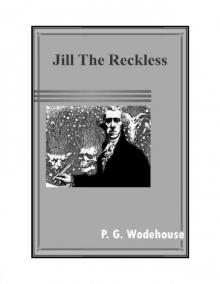 Jill the Reckless
Jill the Reckless Uncle Fred in the Springtime
Uncle Fred in the Springtime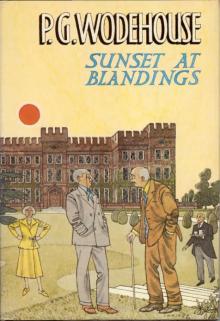 Sunset at Blandings
Sunset at Blandings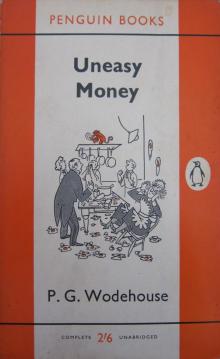 Uneasy Money
Uneasy Money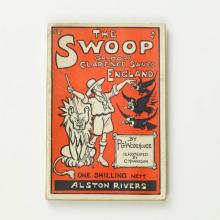 The Swoop! or, How Clarence Saved England: A Tale of the Great Invasion
The Swoop! or, How Clarence Saved England: A Tale of the Great Invasion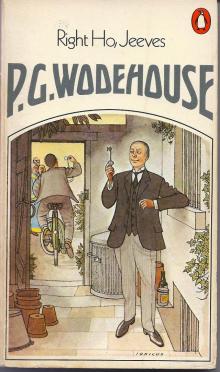 Right Ho, Jeeves
Right Ho, Jeeves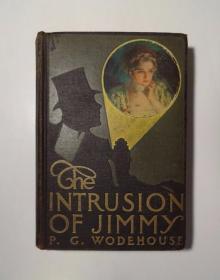 The Intrusion of Jimmy
The Intrusion of Jimmy The Jeeves Omnibus - Vol 1:
The Jeeves Omnibus - Vol 1: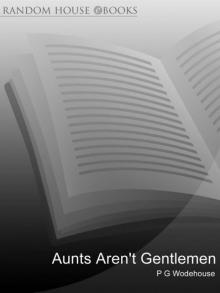 Aunts Aren't Gentlemen:
Aunts Aren't Gentlemen: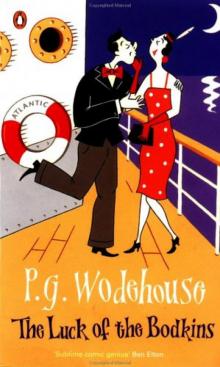 The Luck of the Bodkins
The Luck of the Bodkins The Little Nugget
The Little Nugget Money for Nothing
Money for Nothing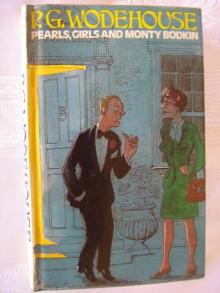 Pearls, Girls and Monty Bodkin
Pearls, Girls and Monty Bodkin Mulliner Nights
Mulliner Nights Blandings Castle and Elsewhere
Blandings Castle and Elsewhere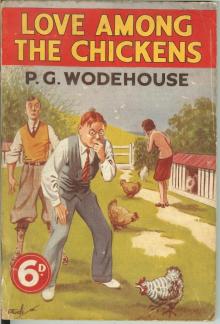 Love Among the Chickens
Love Among the Chickens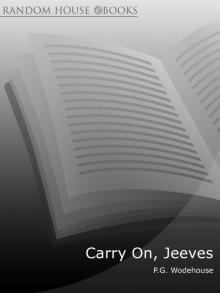 Carry On, Jeeves!
Carry On, Jeeves!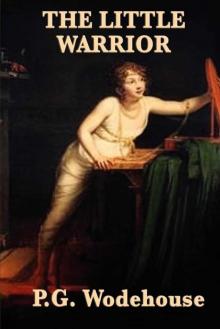 The Little Warrior
The Little Warrior Ice in the Bedroom
Ice in the Bedroom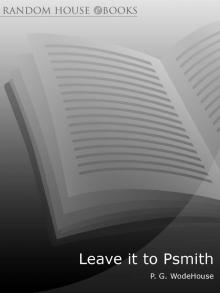 Leave It to Psmith
Leave It to Psmith Thank You, Jeeves:
Thank You, Jeeves: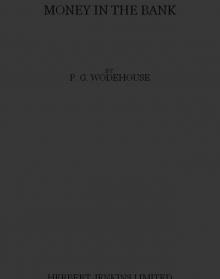 Money in the Bank
Money in the Bank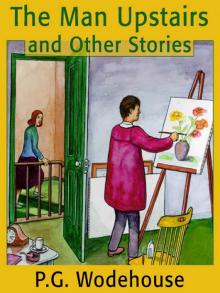 The Man Upstairs and Other Stories
The Man Upstairs and Other Stories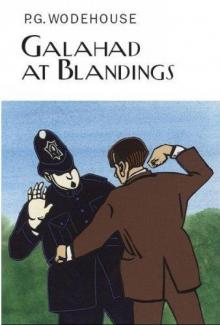 Galahad at Blandings
Galahad at Blandings The Jeeves Omnibus Vol. 5
The Jeeves Omnibus Vol. 5 Uncle Dynamite
Uncle Dynamite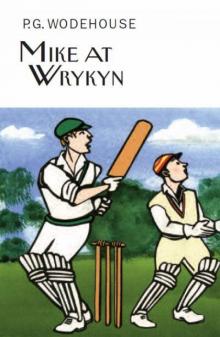 Mike at Wrykyn
Mike at Wrykyn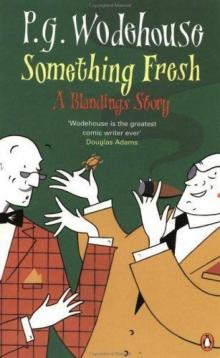 Something Fresh
Something Fresh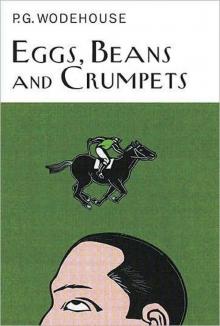 Eggs, Beans and Crumpets
Eggs, Beans and Crumpets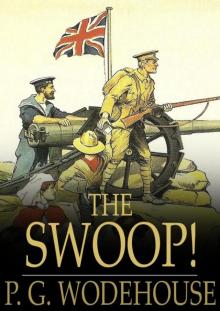 The Swoop: How Clarence Saved England (Forgotten Books)
The Swoop: How Clarence Saved England (Forgotten Books)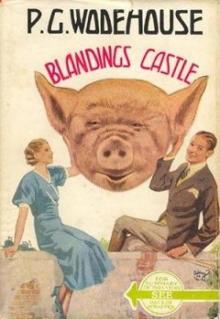 Blanding Castle Omnibus
Blanding Castle Omnibus Wodehouse at the Wicket: A Cricketing Anthology
Wodehouse at the Wicket: A Cricketing Anthology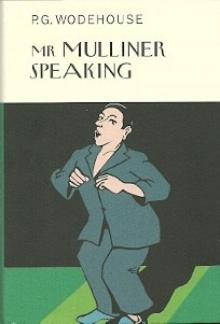 Mr. Mulliner Speaking
Mr. Mulliner Speaking Hot Water
Hot Water The Jeeves Omnibus - Vol 3: The Mating Season / Ring for Jeeves / Very Good, Jeeves
The Jeeves Omnibus - Vol 3: The Mating Season / Ring for Jeeves / Very Good, Jeeves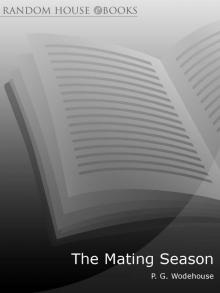 The Mating Season
The Mating Season Meet Mr. Mulliner
Meet Mr. Mulliner The Man with Two Left Feet, and Other Stories
The Man with Two Left Feet, and Other Stories Not George Washington — an Autobiographical Novel
Not George Washington — an Autobiographical Novel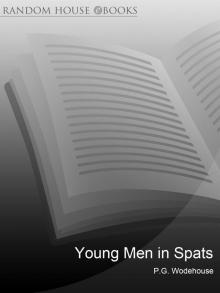 Young Men in Spats
Young Men in Spats The Jeeves Omnibus Vol. 4
The Jeeves Omnibus Vol. 4 A Pelican at Blandings:
A Pelican at Blandings: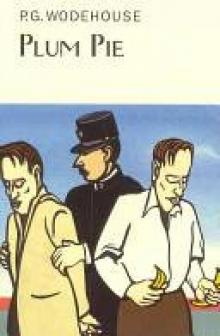 Plum Pie
Plum Pie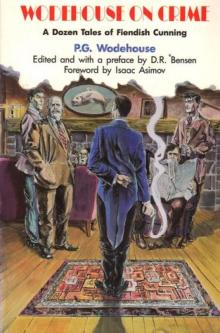 Wodehouse On Crime
Wodehouse On Crime The Jeeves Omnibus Vol. 2: Right Ho, Jeeves / Joy in the Morning / Carry On, Jeeves
The Jeeves Omnibus Vol. 2: Right Ho, Jeeves / Joy in the Morning / Carry On, Jeeves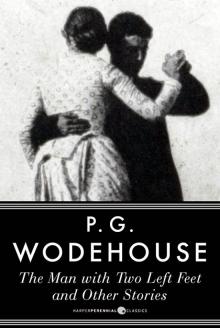 The Man With Two Left Feet
The Man With Two Left Feet Full Moon:
Full Moon: Jeeves and the Feudal Spirit:
Jeeves and the Feudal Spirit: Ring For Jeeves
Ring For Jeeves Something New
Something New The Girl on the Boat
The Girl on the Boat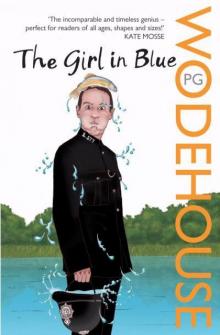 The Girl in Blue
The Girl in Blue Pigs Have Wings:
Pigs Have Wings: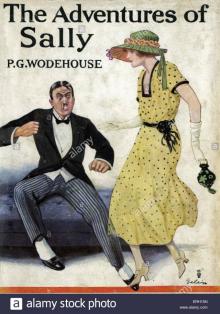 The Adventures of Sally
The Adventures of Sally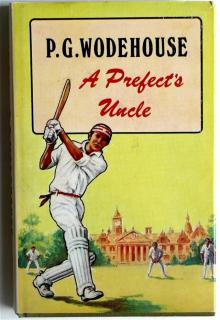 A Prefect's Uncle
A Prefect's Uncle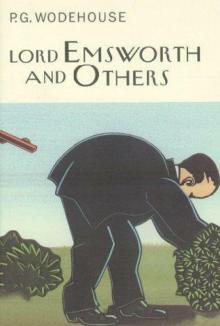 Lord Emsworth and Others
Lord Emsworth and Others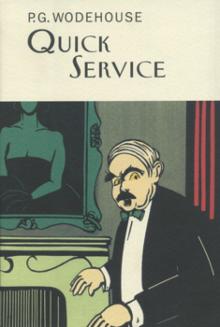 Quick Service
Quick Service The Prince and Betty
The Prince and Betty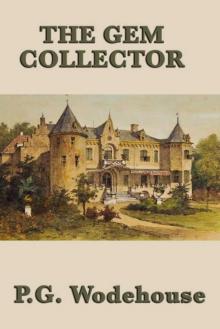 The Gem Collector
The Gem Collector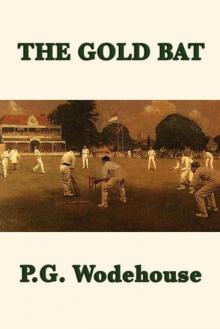 The Gold Bat
The Gold Bat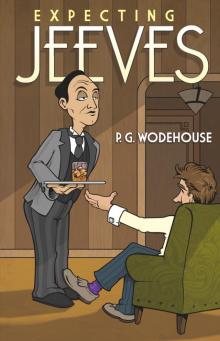 Expecting Jeeves
Expecting Jeeves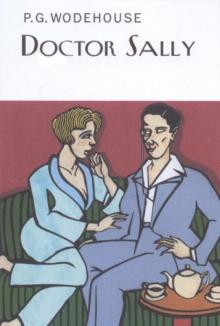 Doctor Sally
Doctor Sally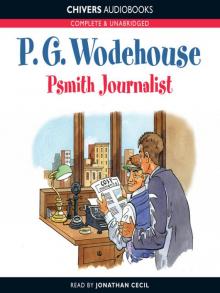 Psmith, Journalist
Psmith, Journalist The Golf Omnibus
The Golf Omnibus Heavy Weather
Heavy Weather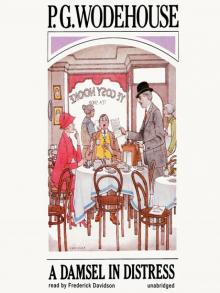 A Damsel in Distress
A Damsel in Distress The Coming of Bill
The Coming of Bill Summer Lightning
Summer Lightning Piccadilly Jim
Piccadilly Jim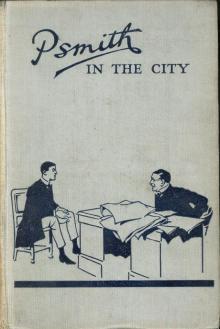 Psmith in the City
Psmith in the City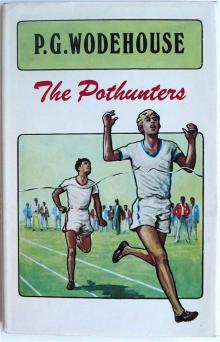 The Pothunters
The Pothunters Service With a Smile
Service With a Smile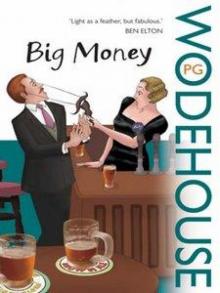 Big Money
Big Money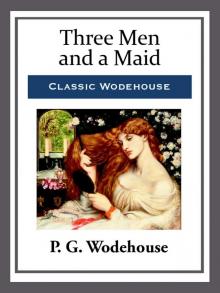 Three Men and a Maid
Three Men and a Maid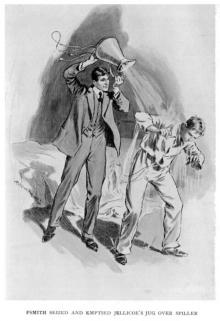 Mike and Psmith
Mike and Psmith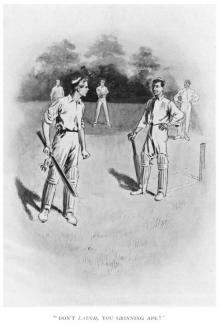 Mike
Mike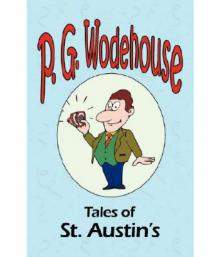 Tales of St. Austin's
Tales of St. Austin's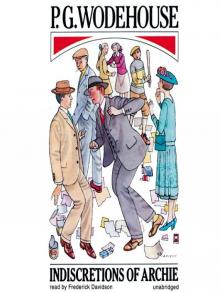 Indiscretions of Archie
Indiscretions of Archie Pigs Have Wings
Pigs Have Wings The Jeeves Omnibus - Vol 4: (Jeeves & Wooster): No.4
The Jeeves Omnibus - Vol 4: (Jeeves & Wooster): No.4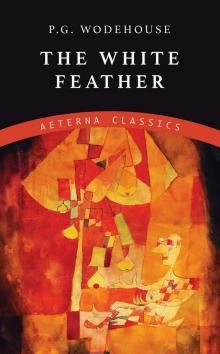 The White Feather
The White Feather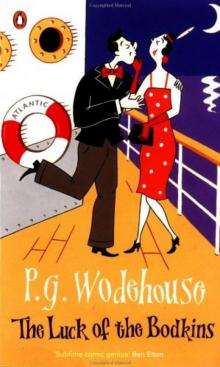 Luck of the Bodkins
Luck of the Bodkins THE SPRING SUIT
THE SPRING SUIT Full Moon
Full Moon Very Good, Jeeves
Very Good, Jeeves Thank You, Jeeves
Thank You, Jeeves Reginald's Record Knock.
Reginald's Record Knock. Wodehouse At the Wicket
Wodehouse At the Wicket LADIES AND GENTLEMEN V. PLAYERS
LADIES AND GENTLEMEN V. PLAYERS The Jeeves Omnibus - Vol 5: (Jeeves & Wooster)
The Jeeves Omnibus - Vol 5: (Jeeves & Wooster) The Jeeves Omnibus - Vol 1: (Jeeves & Wooster): No.1
The Jeeves Omnibus - Vol 1: (Jeeves & Wooster): No.1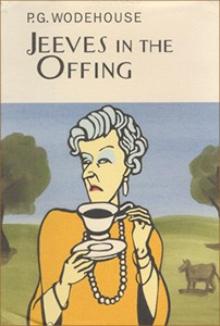 Jeeves in the offing jaw-12
Jeeves in the offing jaw-12